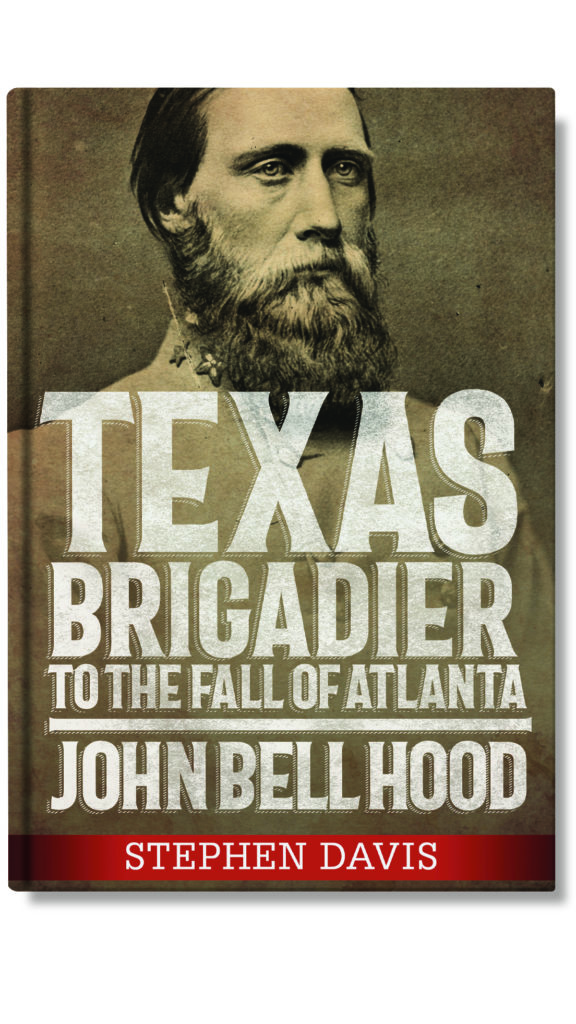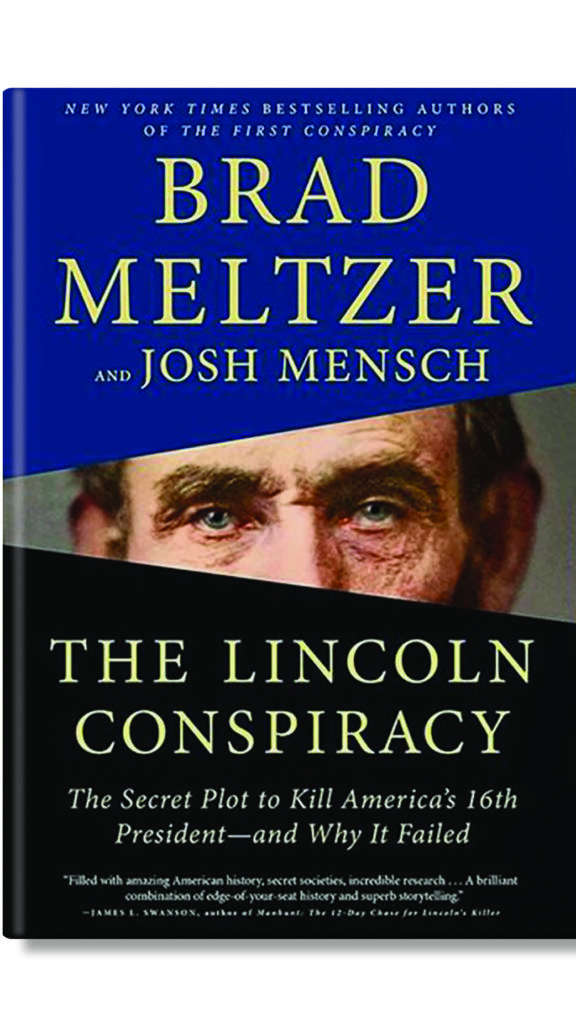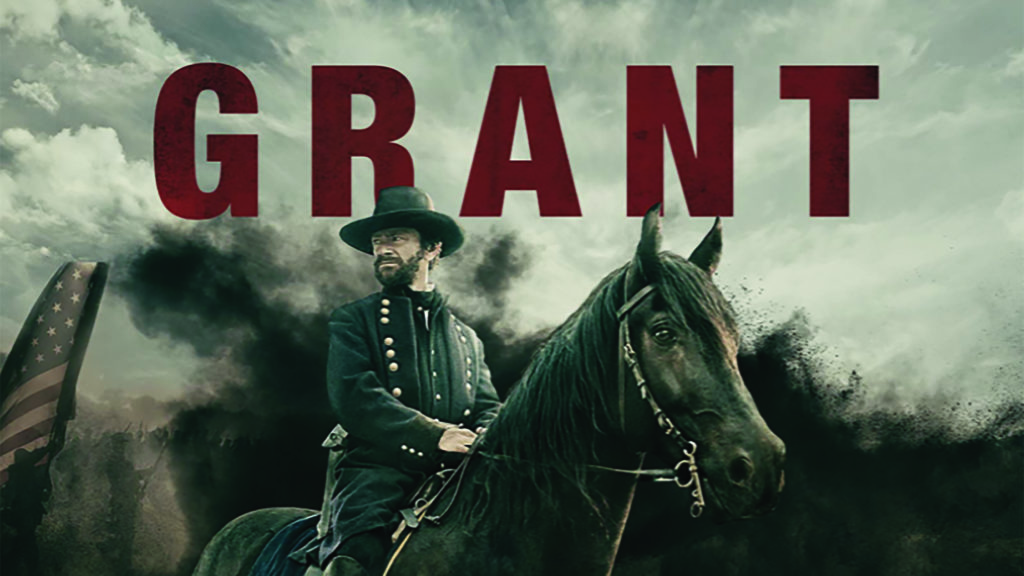The premise of Fergus Bordewich’s engrossing new book is apparent from his subtitle—How Republican Reformers Fought the Civil War, Defied Lincoln, Ended Slavery, and Remade America. The author sets out to counter the popular supposition that “Abraham Lincoln alone led the Union war effort and freed the slaves.” He builds his case by focusing on the exertions of four members of the 37th and 38th Congresses.
Two—Representative Thaddeus Stevens of Pennsylvania and Senator Benjamin Wade of Ohio—were unapologetic Radicals committed to freeing the enslaved and punishing the rebellious South. “I am a Radical,” wrote Wade, “and I glory in it.” William Pitt Fessenden was of a more conservative bent, but the Maine senator increasingly sided with his Radical colleagues before replacing Salmon Chase as Treasury secretary in 1864. And Clement Vallandigham, a Democratic representative from Ohio and a fervent Southern sympathizer, would be convicted of giving aid and comfort to the enemy in 1863 and banished to the Confederacy.
This strong-willed quartet shared a disdain for Abraham Lincoln, and the creation of the Joint Committee on the Conduct of the War in the fall of 1861 provided a platform from which they could goad the Lincoln administration to adopt a more aggressive military posture. Wade and fellow committee members visited battlefields to question Union officers and held a series of high-profile hearings to investigate the Federal armies’ frequent and alarming early war failures to suppress the rebellion.
Bordewich skillfully exploits primary sources to render the distinctive personalities of his four protagonists and many of their contemporaries. Fessenden emerges as especially nuanced, a reluctant Radical who often bridled at Wade’s belligerence. Lincoln is notably absent from much of the book. Bordewich argues for the pivotal role of Congress and the Radicals in emancipation and Union victory. And there is no doubt that Stevens, Wade, and their cronies were central players in this national drama. But the extent to which they “defied” Abraham Lincoln is arguable.
With the exception of a December 1862 Cabinet crisis, engineered by Salmon Chase, congressional critics never seriously threatened Lincoln’s prerogatives as chief executive. He responded to their pressure from time to time, but his deliberative approach to leadership allowed him to proceed as he thought best.
“The country has little to hope [for], I fear, from either Mr. Lincoln or his advisers,” wrote William Fessenden after the 1862 midterm elections. He could not have been less prescient.—Rick Beard
A Life at Breakneck Speed
The 2017 publication of Ron Chernow’s prize-winning tome Grant, helped to revive interest in Ulysses S. Grant, arguably the Union’s most important general and this country’s 18th president, whose character had long been marred by innuendo.
The History Channel’s three-part miniseries of the same name, produced by Leonardo DiCaprio and based on Chernow’s book, seeks to do the same.
If you can appreciate it for that intent, you will indeed appreciate it. If you are seeking meticulous historical accuracy and Academy Award-worthy battle scenes, you will be disappointed. And, frankly, that would be a shame. Because it seems clear from the beginning and the breakneck speed at which the series summarizes Grant’s pre-Civil War life, that there will be no deep dive here into the more complicated aspects of Grant’s character.
But, instead, a general overview of his steadfast nature and dogged determination in most matters that carry him from a simple and unsuccessful life of obscurity, to heading the entire Union Army, orchestrating its final success in the Civil War, and lastly to the presidency of the United States.
At this, the series succeeds, and those of us already immersed in the study of the Civil War can hope that its success will translate into a new, wider interest in learning about Grant and, of course, the conflict itself.
The series makes no apologies for calling out the Lost Cause narrative that has forced the dialogue into discussions about whether the war was fought over slavery or states’ rights, and by so doing, muting the conversations about not just the massive military efforts put out by both sides seeking to win the war, but also the immense social disorder brought about by the Union’s victory. Much of that upheaval was defaulted to Grant to manage after the assassination of Abraham Lincoln and during Grant’s later terms as president.
Six hours is hardly enough time to scratch the surface on many of these topics, and for much of the series, it’s impossible to ignore the rushed treatment that Grant’s family life and close relationships are given, despite the fact that many of those portrayals are highlights in Chernow’s book. Likewise, Grant’s shortcomings, most notably his naivete in business matters and, of course, his alcoholism, are expertly explored in the book but given the time constraints receive just a little more than a nod here.
The series does take time to focus attention on some of the larger themes, though, including military strategy, particularly Grant’s Vicksburg Campaign and his efforts in Petersburg to bring the war to a close. Likewise, Grant’s efforts both during and after the war to win fair treatment for the formerly enslaved population is highlighted here, including Grant’s success in abolishing the KKK during his tenure as president—an achievement that has deserved more recognition than formerly afforded it.
Justin Salinger does a fine job of portraying Grant in the series’ dramatized scenes, but the reenactments, tarnished by inaccurate materiel culture and made-for-TV dialogue, are not where Grant’s story is told. Instead, an impressive and diverse lineup of Grant and Civil War experts, many who are contributors to our magazines, readily guide the viewer through his life and the war, with careful analysis and emphasis on aspects of the conflict and Grant’s character that summarize both eloquently and with such passion for the subject that, again, one can hope their enthusiasm will inspire a new public interest in the study of the war and its ultimate victor, Ulysses S. Grant. –Melissa A. Winn

By Stephen Davis
Mercer University Press, 2019, $35
During the first year of the war in Virginia, John Bell Hood turned in performances at the head of the Texas Brigade that led to a promotion to division command. He further cemented his reputation as a first-rate combat commander at Second Manassas and in the Maryland Campaign before falling wounded at Gettysburg on July 2, 1863. A few months later, Hood was wounded again at Chickamauga. Had wounds cost Hood his life, instead of just a leg, it is almost certain he would be universally acclaimed as one of the Civil War’s great soldiers.
Unfortunately for Hood’s reputation in history, he survived Chickamauga, ascended to corps command in that army under Joseph E. Johnston, and did not prevent the Yankees from reaching the gates of Atlanta in 1864. He then took Johnston’s place in one of the most controversial command changes of the war. Hood’s performance in army command, highlighted by his failure to hold on to Atlanta and a disastrous campaign in Tennessee, have cast an unhappy shadow over his reputation. Historians Herman Hattaway and Keith Bohannon, for instance, concluded the contrast between Hood’s performances before and after Chickamauga made the general an example of the “Peter Principle”—a man promoted above his level of competence.
The last decade, however, has seen a number of works that offer new looks at Hood. Stephen Davis’ massive tome, Texas Brigadier to the Fall of Atlanta, the first in a projected two-volume study, is the latest. Davis is well-known for his decades of significant contributions to scholarship on the Atlanta Campaign, though he also provides a solid account here of Hood’s life and career prior to 1864. Still, it is Hood’s efforts as a corps and army commander in May–September 1864 that consume by far the bulk of the book. In the course of crafting his study, Davis extensively engages with both the primary source material and what previous scholars have had to say about various aspects of Hood’s life and career. If at times he devotes more space to the latter than is really necessary, this is more than offset by the book’s many positive qualities. Not least of these is Davis’ writing, which not only makes this an informative account of Hood’s life to September 1864 and major contribution to scholarship, but a really good read as well.—Ethan S. Refuse
What Are You Reading?
Jennifer Murray, assistant professor of history, Oklahoma State University
I am reading Frank O’Reilly’s The Fredericksburg Campaign: Winter War on the Rappahannock, a volume that offers the perfect balance of strategy, operations, logistics, tactics, leadership, and the soldier experience. I am writing a biography on George Meade, and O’Reilly’s work has shaped my understanding of the assault at Prospect Hill. O’Reilly’s nuanced interpretation of the Union high command moves beyond Burnside’s failures and questions the leadership of William Franklin and John Reynolds. This is the definitive volume on the campaign, and masterfully written. O’Reilly’s expert knowledge reminds us that magisterial Civil War monographs are not always penned by academics.
[hr]

By Brad Meltzer and Josh Mensch
Flatiron Books, 2020, $29.99
February 1861. President-elect Abraham Lincoln leaves Illinois, bound for his inauguration in Washington. But during his journey he encounters a big problem; private detective Allan Pinkerton and his associates have uncovered credible evidence concerning a plot to kill the “Railsplitter” in Baltimore. In The Lincoln Conspiracy, Brad Meltzer and Josh Mensch re-create what many history buffs aren’t aware of: How this story unfolds.
It was no coincidence that Southern sympathizers hatched their plan in Baltimore. Virulently pro-Confederate, the city was home to brawlers, cutthroats, powerful and corrupt politicians, and throughout the war, a den of spies and blockade runners. Although Lincoln won his bid for president, he didn’t come close to winning in Mobtown or Maryland. A so-called “black Republican” candidate, he received a paltry two percent of the state’s popular vote and none of its electoral—a surprise to no one, including Lincoln.
On his long train ride, Lincoln had to pass through a number of cities, including Baltimore. But hired by the president of the Philadelphia, Wilmington & Baltimore Railroad, Pinkerton was on the lookout for trouble. Through a network of covert operatives, he uncovered a plot to kill Lincoln as he switched trains in Mobtown. How could he get the president-elect to Washington alive?
This is the tale that Meltzer and Mensch tell in impressive detail. As a novelist, Meltzer is no stranger to suspense and realism. As such, the book takes us back to 1861, putting the reader in the exciting moments throughout Lincoln’s inaugural trip. Indeed, the writing style is a perfect fit for the story; a cinematic narrative filled with cliff-hangers and action.
Mensch’s research skills are also impressive. The Lincoln Conspiracy will appeal to a broad audience, including Civil War enthusiasts and those simply looking for a good read. There is something for everyone to learn. Using an array of source material—newspapers, letters, and official government documents—Meltzer and Mensch bring this little-known story to life; an episode on which the nation’s future hinged.—Michael G. Williams





